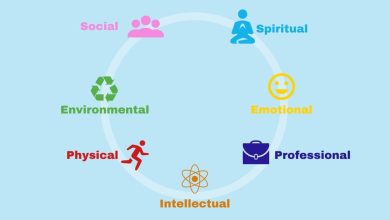7 Helpful Tricks to Making the Most of Your Planet Fitness

Welcome to Planet Fitness, the judgement-free zone where everyone is welcome to achieve their fitness goals! Whether you are a seasoned gym-goer or just starting out on your health journey, this popular gym chain has everything you need for a great workout. But with so many options and machines available, it can be overwhelming to know where to start.
That’s why we’ve compiled these 7 helpful tricks to help you make the most of your Planet Fitness membership and get the best results possible! From tips for working out effectively, using the machines correctly and maximizing your membership benefits, we’ve got you covered. So let’s dive in and discover how you can take your workouts to the next level at Planet Fitness!

Tricks for working out
Tricks for working out effectively can make all the difference in achieving your fitness goals at Planet Fitness. One helpful tip is to set a clear goal and create a workout plan that focuses on specific muscle groups each day. This approach helps you stay motivated and track your progress.
Another trick is to incorporate high-intensity interval training (HIIT) into your routine. HIIT workouts combine short bursts of intense exercise with recovery periods, making them efficient and effective for burning calories and building endurance.
Don’t forget to warm up before each workout! A proper warm-up prepares your body for exercise, reduces the risk of injury, and increases flexibility.
Staying hydrated during your workout is also essential. Bring a water bottle with you or take advantage of the drinking fountains located throughout the gym.
Don’t be afraid to ask for help from a personal trainer or staff member if you’re unsure about how to use certain equipment or need guidance on proper form. They are there to support you on your fitness journey!

Tricks for using the machines
Using the machines at Planet Fitness can be overwhelming, especially if you’re new to working out. However, with these tricks, you’ll be able to make the most of your machine workouts.
Firstly, start slow and choose a machine that fits your fitness level. Don’t try using the most advanced machine on your first day as it could lead to injury or burnout. Instead, start with something simple like a treadmill or stationary bike and gradually increase difficulty over time.
Secondly, pay attention to form when using weight machines. Incorrect form not only reduces the effectiveness of your workout but also increases your risk for injury. Make sure you read instructions carefully or ask for help from staff members before starting any exercise.
Thirdly, vary your workouts by switching up machines every few weeks. Doing so will keep things interesting and prevent boredom while challenging different muscle groups in new ways.
Don’t forget about stretching after using any machine! Stretching helps prevent tightness and soreness in muscles while also increasing flexibility over time.
By following these tips for using machines at Planet Fitness, you’ll be well on your way to achieving better health and fitness goals!

Tricks for getting the most out of your membership
Getting the most out of your Planet Fitness membership requires a bit of planning and effort.
Here are some tricks that can help you maximize your experience:
1. Attend group fitness classes – Group fitness classes are an excellent way to stay motivated and push yourself harder during workouts. Attend as many classes as you can, whether it’s yoga, Zumba or kickboxing.
2. Use the app – The Planet Fitness app is a great resource for tracking your progress, setting goals and checking class schedules. Make sure you download it and use it regularly.
3. Get familiar with the equipment – Spend some time learning how to use all of the machines properly so you don’t waste any time figuring them out during your workout.
4. Take advantage of free training sessions – Most Planet Fitness locations offer a free training session when you sign up for a membership. Use this opportunity to learn proper form and get personalized advice from a trainer.
5. Connect with fellow gym-goers – Socialize with other members who share similar fitness goals to keep each other accountable and motivated.
By implementing these tricks into your routine, you’ll be able to make the most out of your Planet Fitness membership!

Conclusion
Planet Fitness is a great gym for both beginners and experienced fitness enthusiasts. With its affordable membership fees, friendly atmosphere, and state-of-the-art equipment, there are plenty of ways to make the most out of your workouts.
By following these seven helpful tricks for working out effectively, using the machines correctly, and getting the most out of your membership benefits, you can achieve your fitness goals in no time.
Remember that consistency is key when it comes to exercising regularly. So go ahead and put these tips into action during each visit to Planet Fitness!
See More: Social Media Is the Reprieve We All Need Right Now



